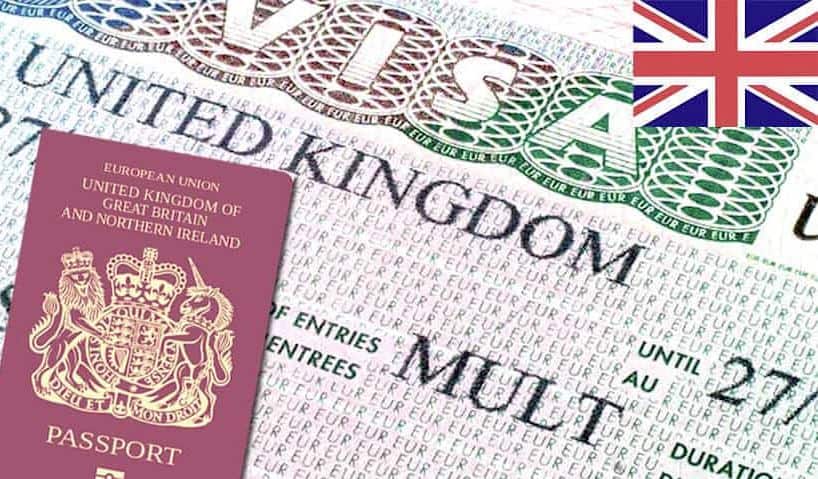How to Pay off Student Loans in 5 Years: This article provides insights into the various ways you could employ in order to pay off your student loan within a 5 year period of time.
The issue isn’t been receiving a loan; it’s always been how to pay it back. If you have a loan debt and are unsure what to do, don’t worry; simply read this article to learn how to pay off a student loan in 5 years.
1. Negotiate with Debt Collectors
Communication is everything and it doesn’t matter the amount or type of loan debt you’re in, chatting with the firm that you owe money is a great way to start reducing that amount.
“Many credit card companies will be willing to put you on a five-year fixed-rate plan if you request it,” said Ash Exantus, director of financial education and financial empowerment coach at BankMobile. “This is a great option because it allows you to know exactly what you need to pay on a monthly basis with no surprises.”
This is also true with student loans. If you have federal loans, you have a variety of repayment options, including income-based repayment programs.
If it’s a medical bill, you might try discussing it with the doctor or hospital. Even if it’s a utility bill, you should contact the firm to see what can be done. You might save hundreds to thousands of dollars on your debt.
However, there are a few things to keep in mind. According to Exantus, most credit card providers would ask you to close your card in order to acquire the five-year plan, which may have a negative influence on your credit score.
Certified public accountant (CPA) Michael Eisenberg, a member of AICPA’s National CPA Financial Literacy Commission, warned that forgiven debt could be subject to income taxes just like your paycheck because it’s considered income. So, it might make sense to talk with a CPA.
2. Consolidate your Debt
You should investigate debt consolidation in addition to approaching the companies to whom you owe money.
“If you have accounts with high-interest rates, getting a debt consolidation loan can be beneficial,” said Sean Fox, debt expert and co-president of Freedom Debt Relief. “These loans, which are accessible from independent lenders, typically offer lower interest rates than credit cards and a tight payment schedule that keeps consumers on track to pay off their debt.”
Consolidating high-interest debt into one monthly payment with a lower interest rate can save you money in both the short and long run. You could wind up paying less every month, and you’ll pay less in interest.
For example, if you owe $10,000 on a credit card with a 15 percent interest rate and make $220 monthly payments, it will take you five years and seven months to pay it off.
You could pay off that debt seven months sooner, pay only $212 each month, and save roughly $2,000 in interest by consolidating it into a personal loan with a 10% interest rate.
3. Adjust your Budget
The second step would be to adapt your budget, by which I mean you should cut back on your spending. This will help you determine where you’re overspending, where you can cut down, and how much more money you can devote to paying off your debt in five years.
“Dig deep into the many lines on your budget and search for methods to cut costs,” said David Bakke, a financial blogger. “To obtain an overview of where your money goes each month, you can use an online resource like Mint, an Excel spreadsheet, or simply pen and paper.”
Determine your fixed costs (mortgage, rent, utilities, and so on) and where you might cut costs as part of your debt-reduction strategy.
“Believe it or not, there are plenty of methods to save on things like power costs and gas for your car, as well as more subjective areas like entertainment,” Bakke added.
Here are some budget areas to reconsider:
- Subscriptions and memberships: Netflix, newspapers, gym, etc. Take a look at what you pay for monthly in those areas and cancel them for easy savings.
- Cable: If you’re paying $100, $200, or more for your cable or satellite TV service but you’re getting most of your content on the web, consider releasing yourself from the monthly charges that you might have signed up for years ago.
- Credit card and bank fees: If you’re paying fees (look at your statement), shop around for no-fee credit cards and checking accounts.
- Insurance: Look for lower rates on similar coverage for your home and car.
4. Choose a Pay-Down Method
You’ve negotiated your debt, aggregated the rest of your debt, and devised a budget. Now you have to decide how you’ll pay off your debt.
“Make an honest appraisal of your ability to pay off the credit card and other debt on your own,” Fox advised. “Set aside a certain amount of money each month to pay off your debt. This should be greater than the sum of all credit card minimum payments.”
He suggested choosing between two methods for debt payoff:
- Debt avalanche: Pay the bare minimum on all debts except the one with the highest interest rate. Pay the minimum amount due on that loan, plus any additional funds available. Repeat this approach each month until the highest-interest debt is paid off. Then continue with the same total monthly amount. However, put the money you spent to pay down the highest-interest obligation toward the second-highest-interest debt. Follow this plan until you’ve paid off all of your debts.
- Debt snowball: Pay the bare minimum on all of your debts. Then, from the monthly amount you’ve set aside, apply the leftover funds to the debt with the least sum. Continue paying the minimum on all debts after that debt is paid off, and apply the remaining cash to the second-smallest loan. Many people choose this technique because it provides them with the gratification of paying off a single loan at a time.
5. Take on a Side Hustle
This is the most important of them all; you have to hustle to make earn money. Few people have followed this step and where able to pay off their debt.
Grant Sabatier is an example. He not only paid off $30,000 in debt in five years, but he also made a million dollars by doing various side jobs in addition to his full-time job.
Kevin Han, the founder of the personal finance blog Financial Panther, tried every side job he could think of in order to pay off his $87,000 in college debt in less than three years.
“Why shouldn’t I still look for ways to supplement my income?” He previously explained why he has so many side hustles while working full-time as a lawyer. “It just aids future financial objectives.” It’s possible that your financial goal is to pay off your debt.
Make every effort to generate additional funds. Driving for Uber, selling unwanted stuff on eBay, or delivering pizza are all excellent methods to supplement your income and pay down debt.
What are your thoughts on this? I strongly encourage you to take advantage of this opportunity to share this information with others by clicking the Facebook, Twitter, or Google+ share buttons below.







Leave a Comment